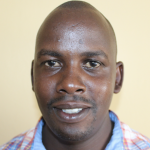The 150 students of Bishop Sulumeti Girls Secondary School pass another school, a tea plantation, and a steep, rocky slope on their way to the spring where they fetch water. The journey is hilly and arduous and leaves students tired.
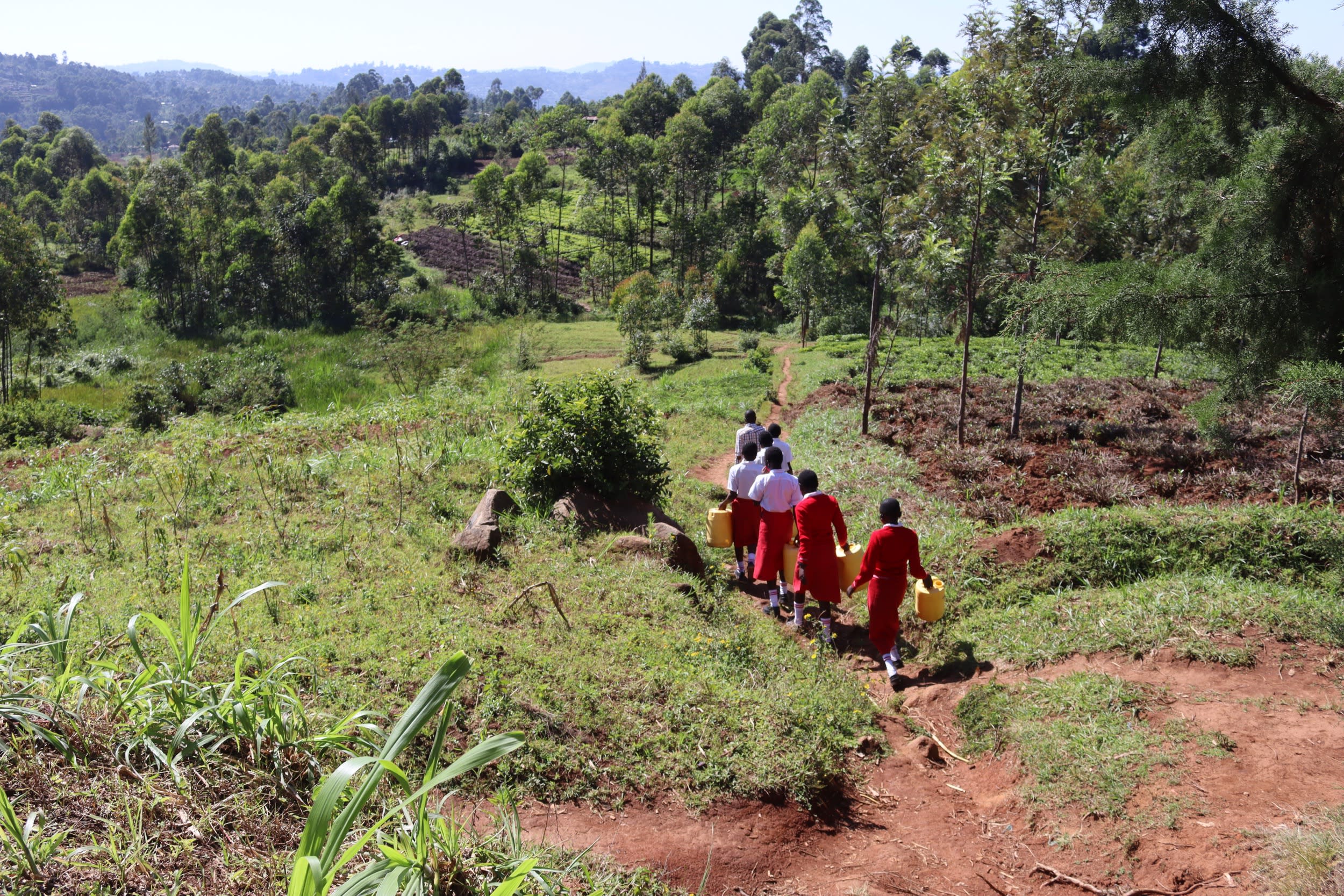
"Carrying water enough for school chores is a very tiresome, time-consuming, and tedious task which makes us fail to concentrate in studies," said Esther, a 15-year-old student. "I almost broke my leg while carrying water on my head. I stepped on a piece of rock, which sprained my ankle."
The spring where they fetch water was protected in 2010 but hasn't undergone regular maintenance. Also, community members wash their clothes above the spring because there is no space at the base. Dirty water then flows into the reservoir, contaminating the water and rendering it unsafe for consumption.
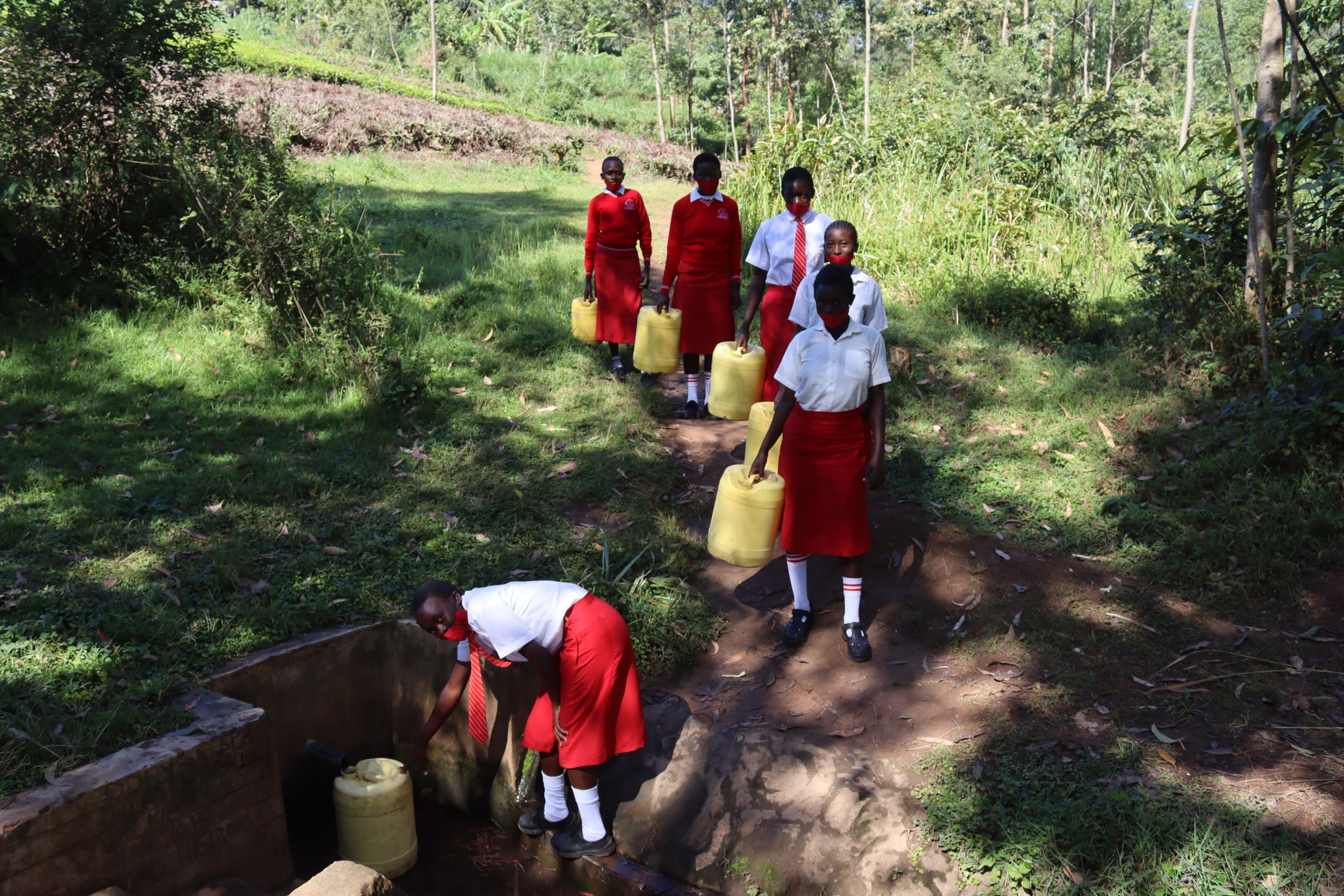
According to the school principal, Priscilla Mutala (shown below), using water fetched from the spring for drinking without treating it has resulted in numerous challenges. The majority of students suffer from headaches, coughing, and stomachaches, and most have been diagnosed with typhoid. This leads to a high rate of absenteeism in the school and poor academic performance.
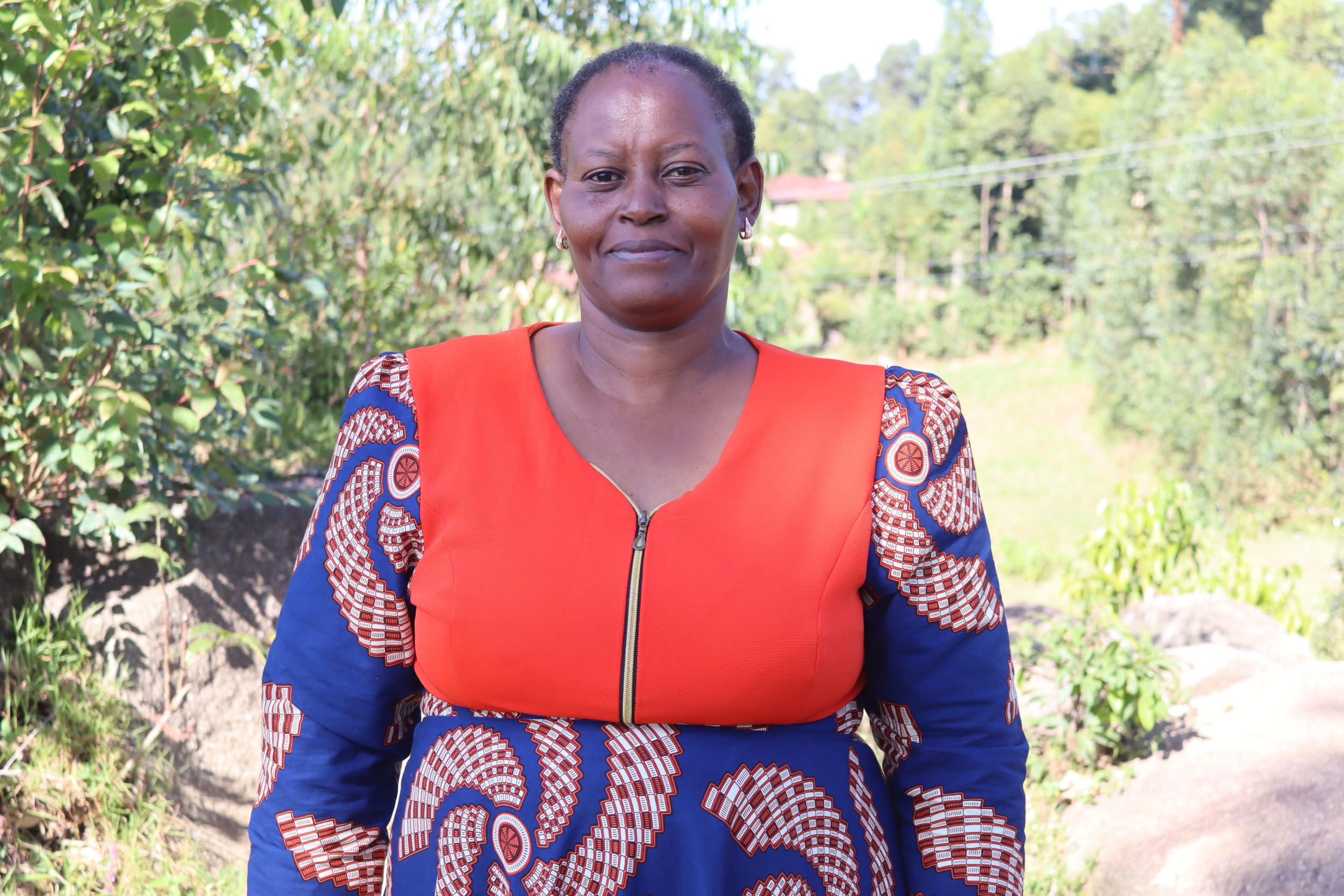
"Water challenges in this school have brought a lot of confusion, not only to students but also to us, [the] teaching staff," Priscilla Mutala said. "When students are sent for water, [it] interferes with normal lessons. When [a] teacher enters [a] classroom to teach, he or she will end up using limited time than the intended time. The next teacher who is supposed to enter the same class may find his/her colleague winding up the lesson because he/she can't suspend the lesson before concluding it, thus making the challenge recurring throughout the day."
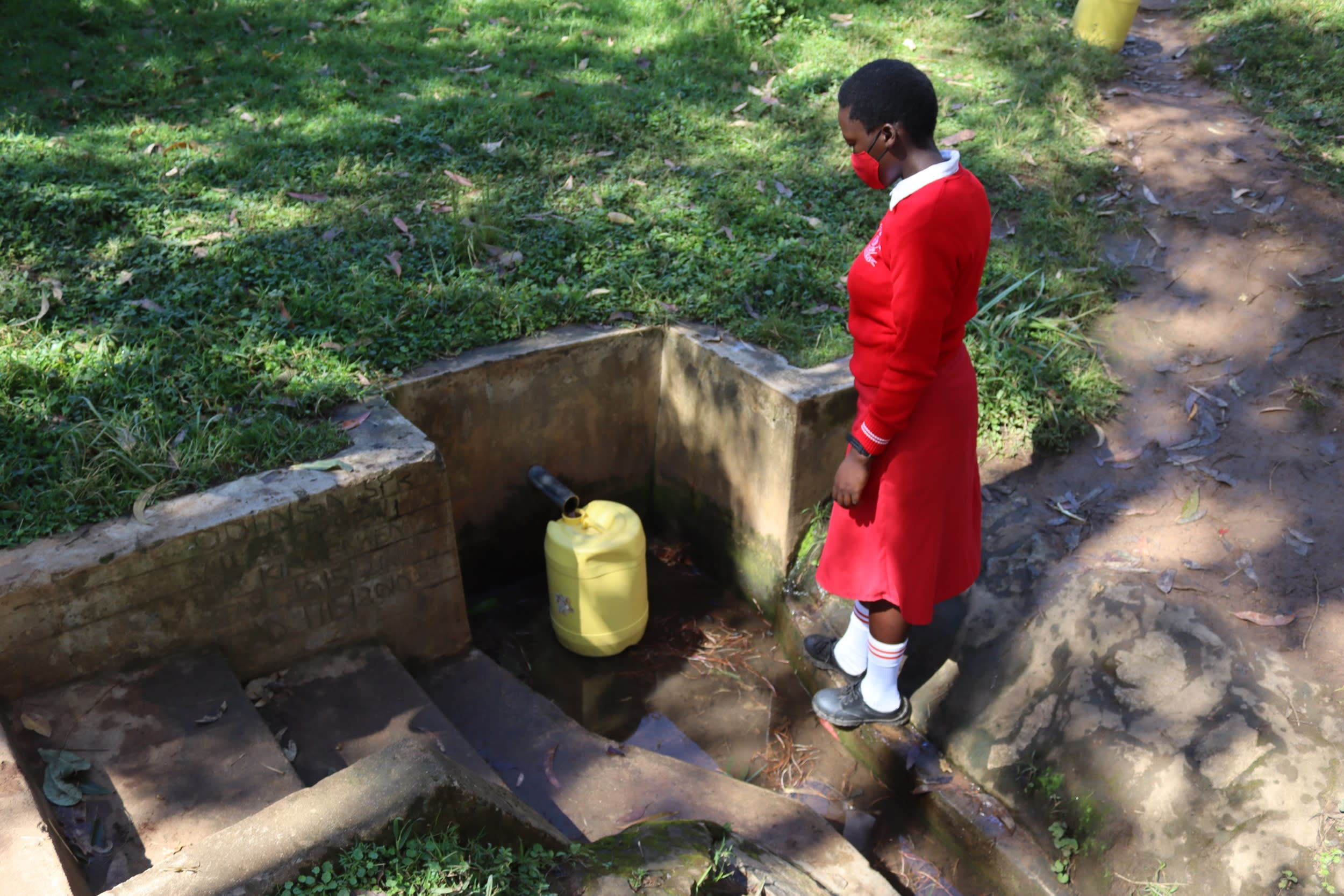
Exacerbating the time issue further, there can be a lot of congestion at the spring, and the water sometimes runs dry. This means that students can make the long hike to the spring only to find that they can't fetch water after all. The frustration that comes with the school's water crisis has led a few students to run away.
What We Can Do:
New Well
We conducted a hydrogeological survey at this school and the results indicated the water table beneath it is an ideal candidate for a borehole well. Due to a borehole well's unique ability to tap into a safe, year-round water column, it will be poised to serve all of the water needs for this school's large population, even through the dry months.
The school will help collect the needed construction materials such as sand, rocks, and water for mixing cement. They will also provide housing and meals for the work team, in addition to providing local laborers. We will complement their materials by providing an expert team of artisans and drilling professionals, tools, hardware, and the hand-pump. Once finished, water from the well will then be used by the school’s students and staff for drinking, handwashing, cooking, cleaning, and much more.
Handwashing Stations
The student health club will oversee the two new handwashing stations we will provide, and make sure they are kept clean and in working condition. The club leaders will fill the handwashing stations with water daily and make sure they are always supplied with a cleaning agent such as soap or ash.
VIP Latrines
We will construct two triple-door latrine blocks using local materials that the school will help gather. All of these new latrines will have cement floors that are designed to be easy to use and to clean. And with a borehole right on school property, there should be enough water to keep them clean.
Training on Health, Hygiene, and More
We will hold a one-day intensive training session with students, teachers, and parents. This training will cover a wide range of topics including COVID-19 symptoms, transmission routes, and prevention; personal and environmental hygiene; and the operation and maintenance of the borehole, latrines, and handwashing stations. There will be a special emphasis on handwashing.
Our team of facilitators will use a variety of methods to train, including participatory hygiene and sanitation transformation, and asset-based community development. We will initiate a student health club, which will prepare students to lead other pupils into healthy habits at school and at home. We will also lead lectures, group discussions, and provide illustrative handouts to teach health topics and ways to promote good hygiene practices within the school including handwashing and water treatment. We will then conduct a series of follow-up trainings before transitioning to our regularly scheduled support visits throughout the year.
We and the school strongly believe that all of these components will work together to improve standards at this school, which will help lead to better student academic performance and will help unlock the opportunity for these students to live better, healthier lives.






 Borehole Well and Hand Pump
Borehole Well and Hand Pump
 Rehabilitation Project
Rehabilitation Project













